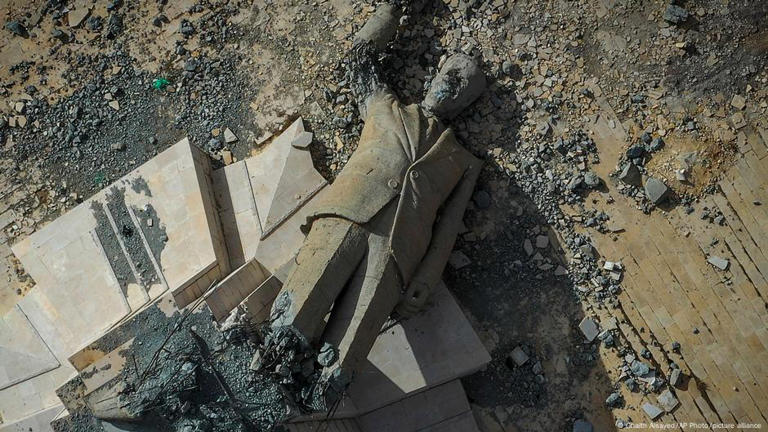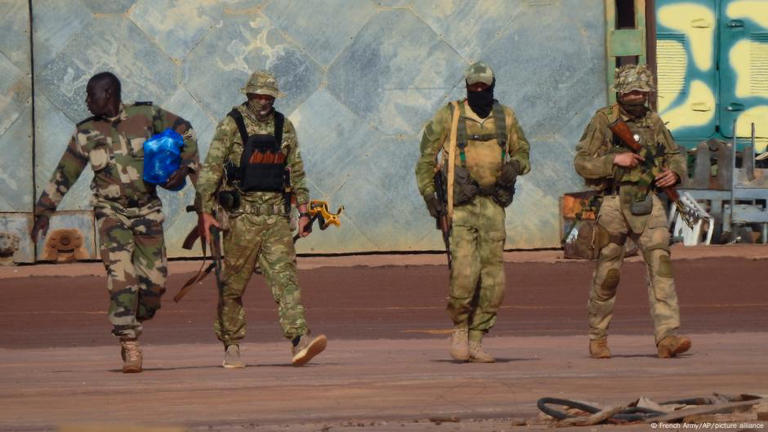
Our Correspondent | Africa Guardian
The fall of Syrian dictator Bashar al-Assad has cast uncertainty over the future of Russia’s military bases in the region. The naval base in Tartus and the airbase in Hmeimim—Russia’s only military outposts outside the former Soviet Union—serve as critical hubs for the Kremlin’s activities in both Africa and the Middle East.

Without these bases, Russia’s ability to support its Africa Corps (formerly the Wagner Group) across countries like Mali, Burkina Faso, Niger, the Central African Republic, and Libya could be significantly compromised. Beverly Ochieng, a security analyst at Control Risks in Senegal, notes that losing these strategic bases would have profound implications.
Jihadist Groups Seizing Opportunity
“We’ve already seen groups like al-Qaeda in Mali celebrating the developments in Syria,” Ochieng told the BBC. “They view it as an opportunity to disrupt cooperation between Russia and Mali further.”
Russian mercenaries have played a pivotal role in stabilizing military regimes in Sahel countries, providing critical support to juntas that rely on Moscow for military personnel and weapons. Unlike Western nations, Russia has refrained from pressuring these regimes to restore civilian governance, earning favor with the ruling elites.
New Challenges for Russian-Backed Juntas
The uncertainty surrounding Russia’s bases in Syria has raised concerns in countries like Burkina Faso and Niger, which had been waiting for increased Russian military support after severing ties with Western forces. According to Ochieng, these nations may now need to bolster their local forces or explore alternative resilience strategies.
While Russia and Sudan reportedly reached an agreement in 2024 to establish a naval base at Port Sudan, the ongoing civil war and the poor state of infrastructure in Sudan have complicated the arrangement. Political scientist Hager Ali from the German Institute for Global and Area Studies (GIGA) highlights that Sudan’s conflict has been critical for Russia in securing access to gold mines, an essential resource for bypassing international sanctions.
Expanding Resource Control in Africa
Russia’s interest in Africa extends beyond military bases. In Mali, Russian mercenaries have seized control of the Intahaka gold mine, a highly contested resource. In Niger, Moscow is pursuing uranium concessions, furthering its geopolitical strategy to challenge Western dominance over Africa’s energy and mineral wealth.
The Role of Libya as a Gateway
With its proximity to the Sahel, Libya has become a focal point for Russia. The Kremlin maintains a substantial presence in the country, with nearly 2,000 personnel stationed there by late 2024. The split governance in Libya—between the UN-recognized administration in Tripoli and General Khalifa Haftar’s faction in Tobruk—offers Russia opportunities for influence.
“Libya’s limited state capacity makes it easier for Russia to conduct mercenary activities,” explains Ali. From Libya, Moscow can access Sahel conflicts and expand its footprint in the region. However, logistical challenges loom large, as transporting supplies and personnel from Libya to other African nations is far more costly and complex compared to using Syria.
Limited Prospects for Expansion
Despite its efforts, Russia’s ambitions in Africa face significant obstacles. Analysts like Ulf Laessing from the Konrad Adenauer Foundation argue that logistical constraints and political uncertainties, such as the future of 81-year-old General Haftar, will hinder further expansion.
“There are pressures from Western nations like France, the US, and Italy to prevent Haftar from ceding more bases to Russia,” Laessing explains. He also points out that Russia’s Africa Corps is unlikely to secure new deals or expand its reach into areas like Chad.
As Moscow grapples with these challenges, its influence in Africa may weaken, forcing the Kremlin to recalibrate its strategies in a rapidly evolving geopolitical landscape.
___
